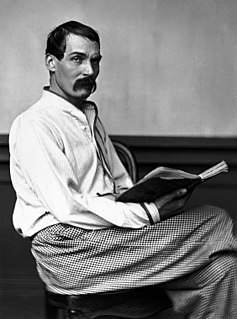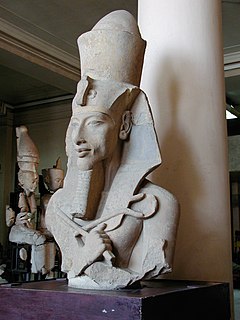A Quote by John Stuart Mill
There is one plain rule of life. Try thyself unweariedly till thou findest the highest thing thou art capable of doing, faculties and outward circumstances being both duly considered, and then do it.
Related Quotes
Antiquity! thou wondrous charm, what art thou? that being nothing art everything? When thou wert, thou wert not antiquity - then thou wert nothing, but hadst a remoter antiquity, as thou calledst it, to look back to with blind veneration; thou thyself being to thyself flat, jejune, modern! What mystery lurks in this retroversion? or what half Januses are we, that cannot look forward with the same idolatry with which we for ever revert! The mighty future is as nothing, being everything! the past is everything, being nothing!
What is thy thought? There is no miracle?
There is a great one, which thou hast not read,
And never shalt escape. Thyself, O man,
Thou art the miracle. Ay, thou thyself,
Being in the world and of the world, thyself,
Hast breathed in breath from Him that made the world.
Thou art thy Father's copy of Himself,--
Thou art thy Father's miracle.
When thou art offended at any man's fault, forthwith turn to thyself and reflect in what manner thou doest error thyself. For by attending to this thou wilt quickly forget thy anger, if this consideration is also added, that the man is compelled; for what else could he do? or, if thou art able, take away from him the compulsion.
Think not so much of what thou hast not as of what thou hast: but of the things which thou hast, select the best, and then reflect how eagerly they would have been sought, if thou hadst them not. At the same time, however, take care that thou dost not, through being so pleased with them, accustom thyself to overvalue them, so as to be disturbed if ever thou shouldst not have them.
Either all things proceed from one intelligent source and come together as in one body, and the part ought not to find fault with what is done for the benefit of the whole; or there are only atoms, and nothing else than a mixture and dispersion. Why, then, art thou disturbed? Say to this ruling faculty, Art thou dead, art thou corrupted, art thou playing the hypocrite, art thou become a beast, dost thou herd and feed with the rest?
Does a man reproach thee for being proud or ill-natured, envious or conceited, ignorant or detracting? Consider with thyself whether his reproaches are true. If they are not, consider that thou art not the person whom he reproaches, but that he reviles an imaginary being, and perhaps loves what thou really art, though he hates what thou appearest to be.
Why dost thou heap up wealth, which thou must quit,
Or what is worse, be left by it?
Why dost thou load thyself when thou 'rt to fly,
Oh, man! ordain'd to die?
Why dost thou build up stately rooms on high,
Thou who art under ground to lie?
Thou sow'st and plantest, but no fruit must see,
For death, alas! is reaping thee.






































